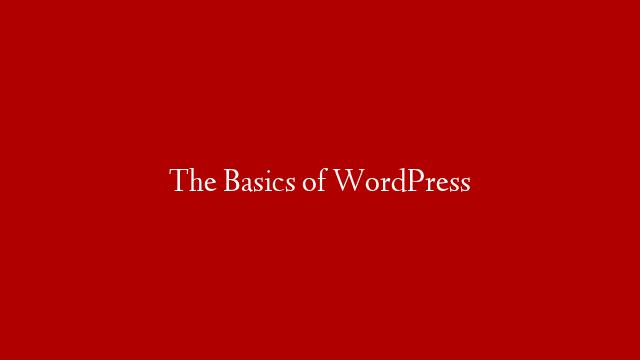Whilst WordPress is able to be used for an extensive array of different internet projects, it’s main use is as one of the most prominent blogging and content management platforms currently available.
WordPress (WP) has been live and serving it’s many users since 2003, with over ten different updates released since its inception to improve everything from the basics of WP through to the more complex and professional aspects.
All of the updates that have been released by WordPress can be downloaded on their open-source website and the code that is used on their commercial site is the same code released to the open-source community.
It is widely regarded as one of the easiest blogging platforms to utilize for beginners and although there are several additional plug-ins that some people charge extra for, the vast majority of the features, themes, install files, and plug-ins are completely free and available to everyone.
It must be remembered though that as WP needs to be installed onto a server, there is some technical work that needs to be carried out before it can be used fully and it is therefore recommended that at least some knowledge or experience of computers and the internet is held.
A large percentage of people who use the platform use it purely for the fact that it was a blogging platform that they had heard of, they wanted a blog, and so they threw one together. Once installed, WordPress generally met all of their needs and there was no need to change.
For many others, though, the platform was chosen specifically for the fact it can easily be used in a variety of different situations and projects. For example, other than being a fantastic blogging platform, WP is also used regularly as an effective and powerful Content Management System. Using WordPress as a CMS is a wise decision because there are so many great plugins available that truly extend the functionality and capabilities of what was once just a blogging platform.
Many large sites that do not even contain ‘blogs’ use this platform for their site because of the sheer power it has. In addition to being able to extend its functionality, the fact that it is so widely adopted makes it a good decision to build a site on. The reason is, should you have problems or need consulting assistance, you will have a large pool of designers and developers very familiar with the source code and able to jump right in and help. The same cannot be said about smaller CMS’s and proprietary systems.
There is one downside to WP that should be mentioned. For one, because so many people use it, hackers are attracted to it and always looking to exploit it. Automatic, the company behind WP, have been great at pushing out updates immediately when threats are identified, but the problem exists nonetheless.
All-in-all, this is THE system that you should use if you are thinking of building a site. Gone are the days of writing HTML sites, using Joomla, or using hosted ‘site builder’ type sites. WordPress just makes it so easy to create a great-looking, content filled site.



